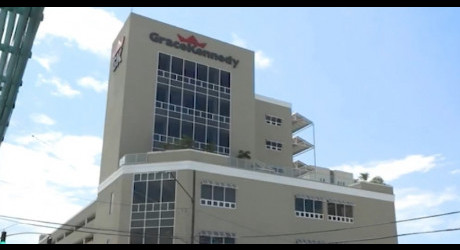Prime Minister Andrew Holness has announced that Jamaica has accomplished the mission of economic stability.
Mr. Holness said the country has managed to focus on fiscal prudence, debt reduction and macroeconomic stability.
This, he said, enabled the country to turn around its economic situation.
He said the country has halved its debt from 146 per cent of GDP to under 70 per cent of GDP.
Additionally, the Prime Minister said the country's unemployment rate has been reduced from 15 per cent to a record low of 4.2 per cent.
He boasted that no other nation in the world has matched the scale of Jamaica's turn around in just under a decade.
"We have increased our net international reserves from $0.9 billion to a record of US$5.7 billion. Our external credit rating, as measured by S&P, has improved by seven notches from the lowest level of selective default in 2013 to BB-. We are now just three notches away from achieving investment grade.
"We have institutionalised discipline in the management of our fiscal and monetary affairs and the crowning moment of that will be the fiscal commission. But, of course, we must recognise the fiscal responsibility framework, our fiscal laws that we have, and the independence of the central bank," he announced on Tuesday as he presented the government's economic policy statement.
However, Mr. Holness said, while economic stability has been achieved, this was never the destination, but a milestone in the journey to Jamaica achieving economic independence.
Noting that the country has made progress, he pointed to the past when Jamaica would usually experience "a year or two of growth, followed by years of decline", compared to the present where the country now consistently experiences sustained growth.
"We have had 20 consecutive quarters of growth before the pandemic and 13 consecutive quarters of growth since the pandemic - the longest period of economic expansion in Jamaica's independent history," he outlined.
Still, Mr. Holness admitted that growth has been anaemic, leaving the country always at risk because of vulnerability to climatic events as a small island developing state.
The next step in the country's economic policy, he said, will be to transition to inclusive growth, where Jamaica will generate its own opportunities and resources to achieve its goals, and where no Jamaican will be left behind in achieving their apsirations.
Under the tagline ASPIRE Jamaica, the Prime Minister outlined the pillars to realising this.
The policy will involve boosting human capital through skills training and creating higher quality jobs, such those focused on science, technology, engineering and mathematics (STEM). The government is also working to establish the Jamaica Institute of Technology in partnership with India - a development the Prime Minister said will be "a game changer for creating the labour force for the industries of the future, for which Jamaica must position itself".
Other pillars include improving safety and security in the country; infrastructure development; removing red tape and bureaucracy to increase the ease, speed and cost of doing business; and economic diversification or the development of new industries.
To monitor whether these targets are being met, a new Efficiency Programme Oversight Committee will be established.
Pledging to "never allow Jamaica to return to those dark days when we were on the edge of the precipice", Prime Minister Holness admitted that the next chapter of higher inclusive growth will not happen overnight, but can be achieved through focused attention and commitment while continuing fiscal discipline.









 All feeds
All feeds







